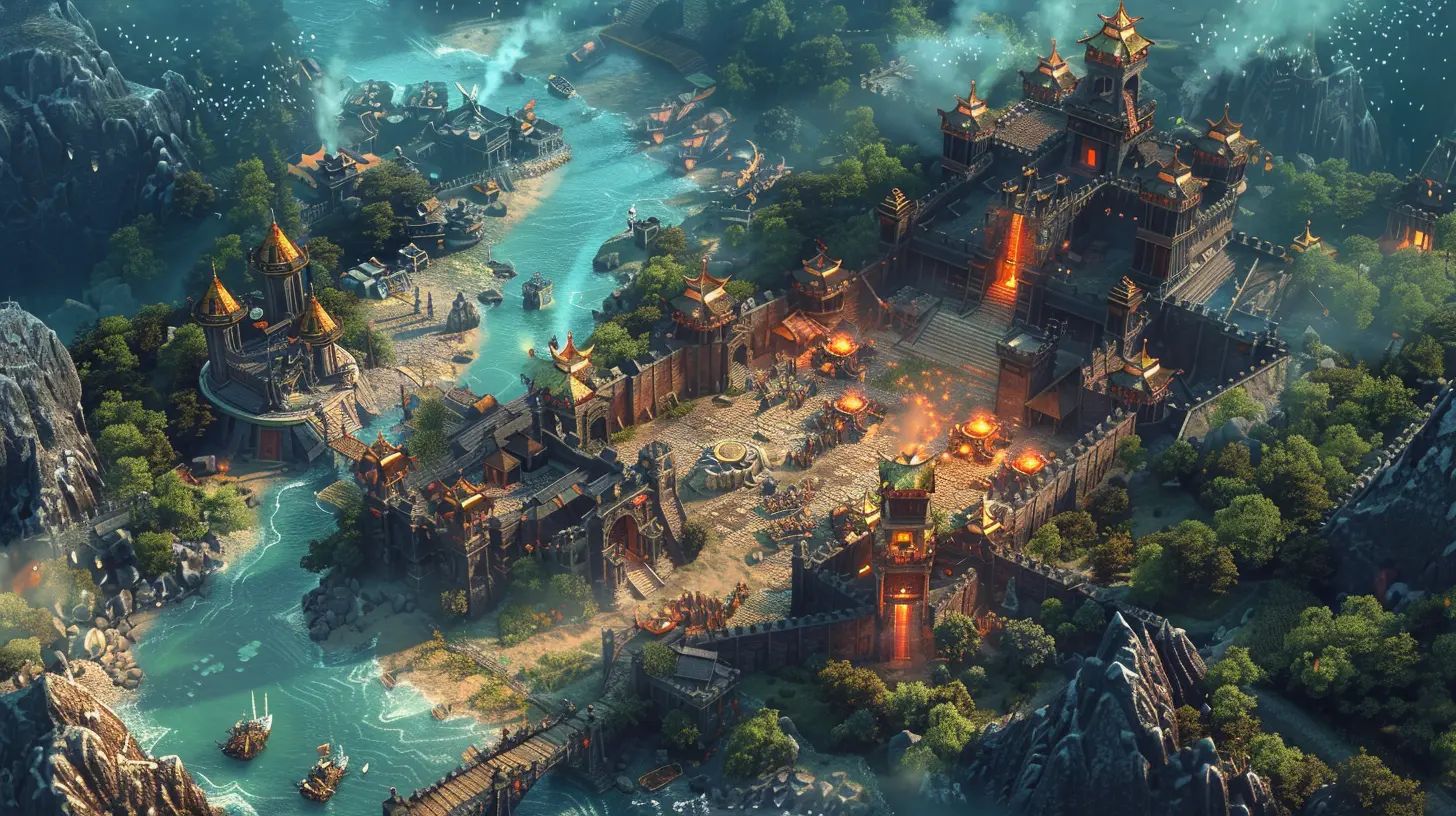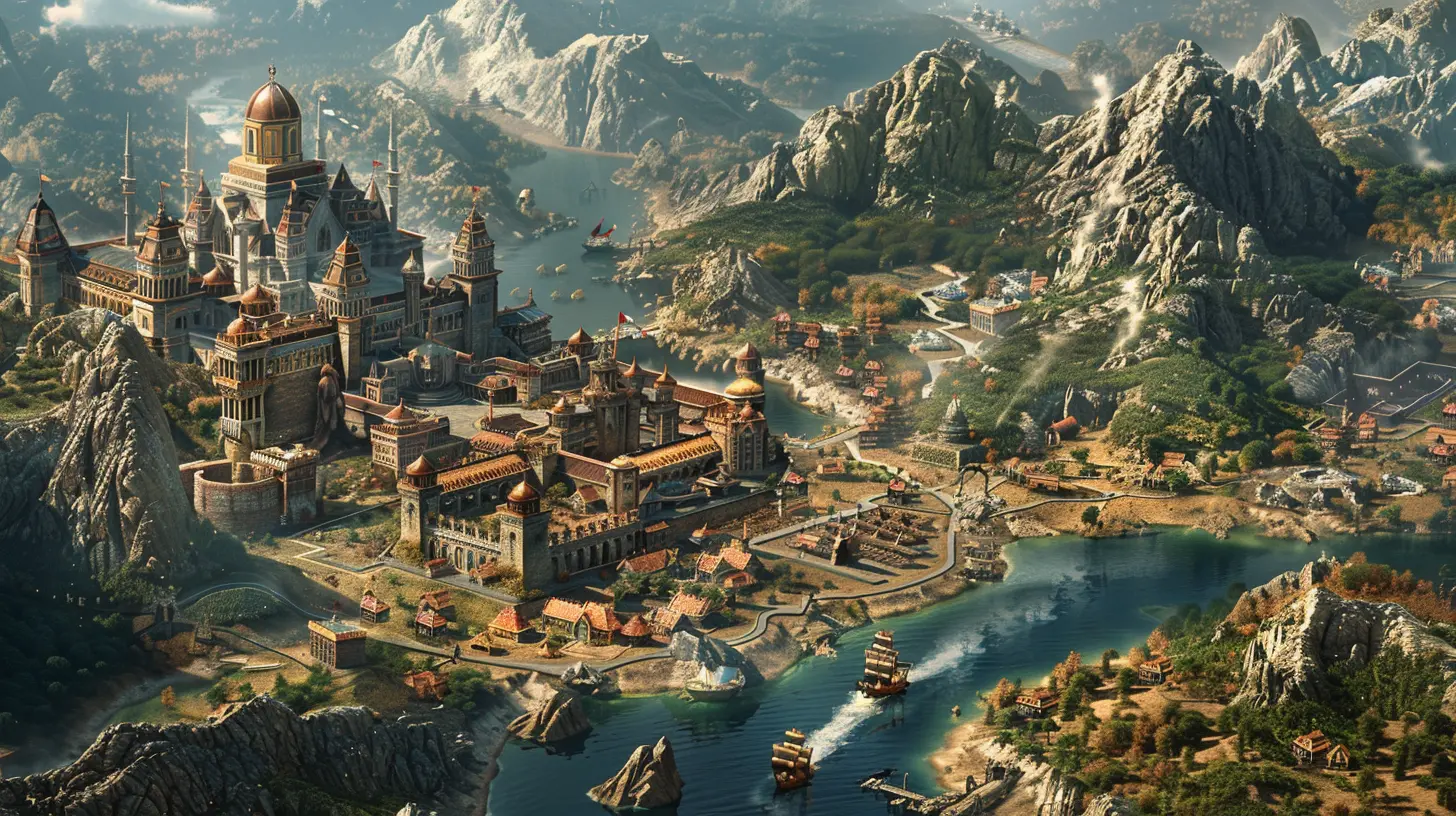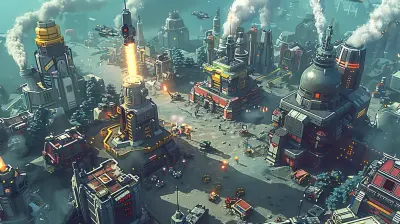The Best Strategies for Conquering Resource-Rich Maps
13 September 2025
So, you’ve landed on a resource-rich map, eh? These maps are like treasure chests waiting to be cracked open—packed with opportunities to build, conquer, and thrive. But here’s the catch: you’re not alone. Everyone else wants to claim that sweet loot too. From aggressive enemies to competitive allies, it’s a mad dash for dominance. But don’t worry! I’ve got your back. Let’s dive into the best strategies for conquering resource-rich maps and make sure you’re the one sitting on top of the leaderboard.
Why Resource-Rich Maps Are a Game-Changer
Before we even get into strategies, let’s talk about why resource-rich maps are such a big deal. These maps are the holy grail for gamers. Why? Because resources are the lifeblood of any game. Whether it’s wood, stone, gold, or some futuristic alien crystal, resources are essential for building your empire, training units, and upgrading your tech.On resource-rich maps, you’re not scraping by, hoping to find just enough to survive. You’ve got a buffet of resources to feast on. But it’s not all sunshine and rainbows. Everyone knows the stakes are higher here, so competition is fierce.
Step 1: Scout Early, Scout Smart
Let me make this clear: scouting is everything on a resource-rich map. You can’t conquer what you don’t know. Start by sending out scouts the moment the game begins. Your goal? Map out the lay of the land. Figure out where the best resources are, and just as importantly, figure out where the other players are.Think of it like a treasure map. You wouldn’t dig for gold without knowing where the X marks the spot, right? The same logic applies here. A solid scouting plan gives you a massive edge because you’ll know exactly where to expand and where to defend.
Pro Tip: If your game allows you to use fog-of-war hacks (or abilities, I mean—we’re not cheaters here!), make use of them to keep tabs on your rivals. Knowledge is power.
Step 2: Prioritize Key Resources
Not all resources are created equal. Sure, on a resource-rich map, you’ve got plenty of everything, but that doesn’t mean you should gather aimlessly. Figure out what’s most critical for your strategy and prioritize that.- Early-Game: Focus on basic resources you need to get your economy running. In most games, this is stuff like food or wood.
- Mid-Game: Shift your focus to higher-tier resources. This might be stone, gold, or anything that lets you tech up and create advanced units.
- Late-Game: This is where exotic or rare materials come into play. If the map has limited high-value resources (like uranium or oil), control them at all costs. These can be game-changers.
Remember, resources don’t just help you grow; they help you deny growth to your opponents. If you control the gold mines while your enemy’s units are stuck with wooden clubs, well…you can guess who’s coming out on top.
Step 3: Expand Early, Expand Aggressively
On resource-rich maps, staying in your starting area is a rookie mistake. You’ll grow, sure, but nowhere near fast enough to compete with aggressive players. Expansion is the name of the game.Here’s the deal: identify high-value areas and claim them as soon as possible. This might mean building outposts, deploying settlers, or even just stationing units around critical resource nodes. Basically, plant your flag before someone else does.
But—and this is important—you can’t expand recklessly. Expansion without protection is just inviting other players to take what you’ve built. Always back up your growth with defenses. Think of it like building a sandcastle at the beach: you wouldn’t forget to build a moat, would you?
Step 4: Use the Sneaky "Resource Denial" Tactic
Here’s a sneaky (but effective) strategy: deny your opponents access to resources. You don’t always have to use a resource to benefit from it. Sometimes, just making sure your rivals don’t get it is enough to tilt the balance in your favor.How do you do this? Build outposts near their base to block access, raid their workers, or camp on high-value resource nodes—even if you’re just sitting on them for fun. It’s a super effective way to cripple their economy while yours flourishes.
Warning: This might make you Public Enemy #1, so be ready for retaliation. But hey, all’s fair in love and gaming, right?
Step 5: Balance Offense and Defense
Okay, so you’ve got a nice stockpile of resources. Great. But what’s the point of hoarding if someone’s going to steal it all? A solid defense is non-negotiable on resource-rich maps.Set up walls, turrets, or defensive units around crucial areas. Your main base and high-value resource hubs should be fortresses. But don’t fall into the trap of being too defensive. Remember, the best defense is a good offense.
Launch attacks to keep your enemies off balance. Is there a rival player expanding a little too close for comfort? Hit them before they get comfortable. You don’t want to be that player stuck turtling while everyone else carves up the map. Stay proactive.
Step 6: Trade and Diplomacy (When the Game Allows)
Sometimes, smashing your rivals isn’t the best option. In games that allow trading or diplomacy, you can use resources as leverage. Got more gold than you know what to do with? Offer it to another player in exchange for an alliance—or better yet, get them to attack your biggest rival.Trading is particularly useful in team-based games or RTS titles with complex economies. Think of it like being a resource-rich kingpin. You’re calling the shots because everyone else wants what you’ve got.
Step 7: Timing Is Everything
Resource-rich maps can lull players into a false sense of security. With all these goodies lying around, it’s easy to think you’re invincible. But beware of the clock. If you spend too long harvesting and upgrading, you might find yourself unprepared when the inevitable battles begin.Timing is everything. Know when to switch gears—from building your economy to building your army. Look for windows of opportunity to strike, and don’t be afraid to pull the trigger. Hesitation usually leads to regret (and losing).
Bonus Tips for Advanced Players
Ready to go next level? Here are a few bonus tips for dominating resource-rich maps:- Micromanagement Is Your Friend: The more control you have over workers and units, the more efficient your resource gathering will be. Small tweaks make a big difference.
- Adapt to the Map: Every map is different. Pay attention to terrain, chokepoints, and weather (if the game has it). Tailor your strategy accordingly.
- Spy on Your Rivals: Use spies or scouts to keep tabs on your opponents’ growth. Knowing their weaknesses gives you an edge in planning your attacks.
Common Mistakes to Avoid
Even the best players slip up sometimes. Here are some common mistakes to steer clear of:1. Over-Expanding: Expanding too quickly can leave your core bases vulnerable. Don’t bite off more than you can chew.
2. Ignoring Defense: It doesn’t matter how many resources you gather if someone destroys your base. Always protect what’s yours.
3. Neglecting Balance: Don’t focus so much on one resource that you forget about others. A balanced economy is a strong economy.
Final Thoughts
Playing on resource-rich maps can feel like walking into a gold mine. But don’t let the abundance fool you. It’s not just about gathering resources; it’s about gathering them smarter and faster than anyone else. Whether you’re scouting early, expanding aggressively, or hoarding rare materials, the key is staying a step ahead of your competition.So, grab your pickaxe (or laser drill, or whatever your game uses), start gathering, and show the world why you’re the king or queen of resource-rich maps. Just remember: it’s not the size of the map that matters—it’s how you play it!
all images in this post were generated using AI tools
Category:
Strategy GamesAuthor:

Emery Larsen
Discussion
rate this article
1 comments
Faelan Edwards
Unlock your full potential on resource-rich maps! Embrace creativity and adaptability in your strategies, and remember that every challenge is an opportunity to learn and grow. With determination and teamwork, you'll conquer any map and emerge victorious. Happy gaming!
September 14, 2025 at 5:13 PM

Emery Larsen
Thank you for the encouragement! Embracing creativity and teamwork is indeed key to mastering resource-rich maps. Happy gaming!


